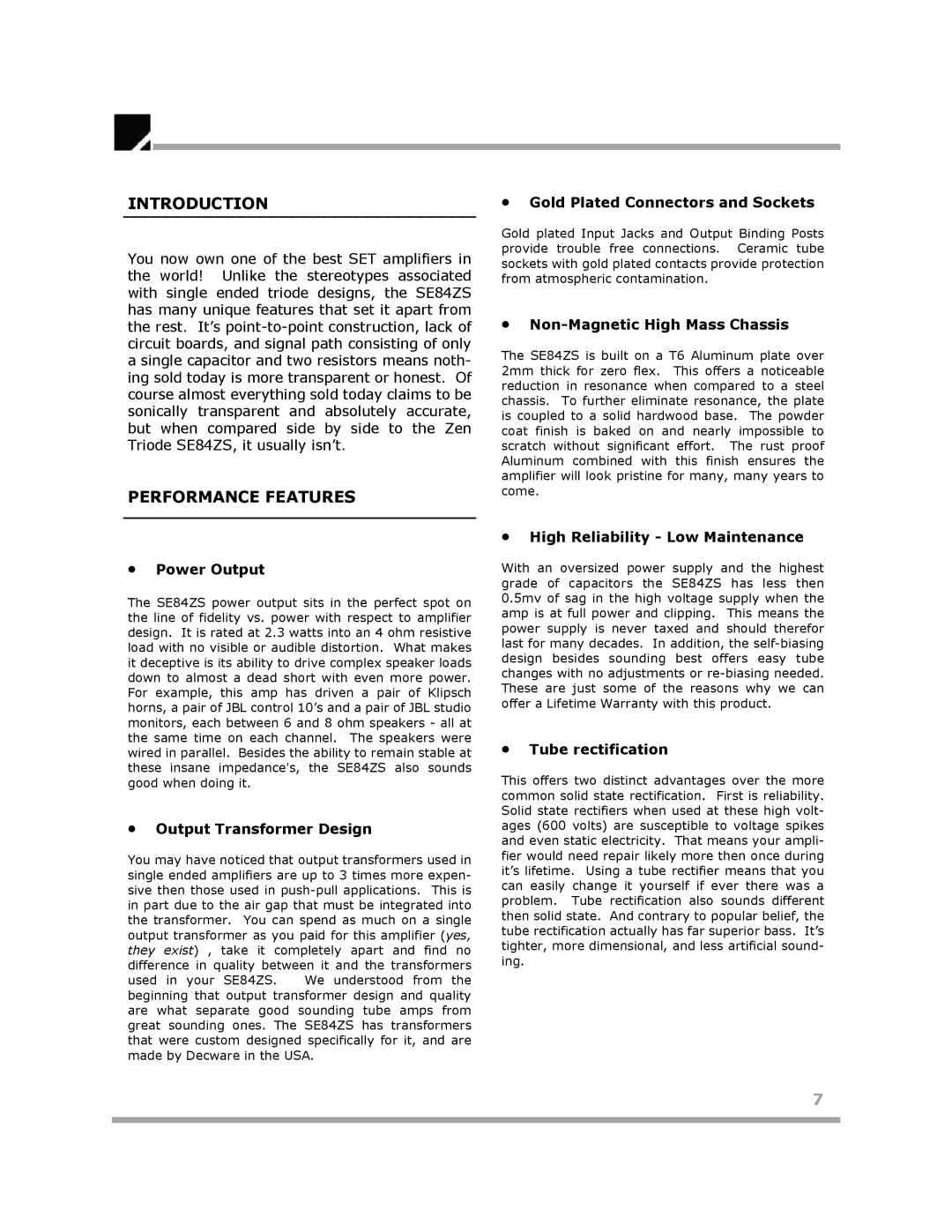SE84ZS specifications
The Klipsch SE84ZS is a notable addition to the realm of high-performance audio systems, renowned for its uncompromising sound quality and exceptional engineering. As part of Klipsch's elite line of products, the SE84ZS is designed for audiophiles and casual listeners alike, delivering a rich and immersive audio experience that showcases the brand's commitment to excellence.One of the standout features of the SE84ZS is its advanced horn-loaded technology. This design utilizes a specialized horn that allows for greater efficiency and seamless sound reproduction across a wide frequency range. The result is a speaker that not only delivers crystal-clear highs and detailed mids but also produces deep, resonating bass, making it ideal for various genres of music and audio sources.
The SE84ZS is built around a robust cabinet construction, engineered to minimize resonance and unwanted distortion. The materials used in its construction are carefully selected to ensure durability while enhancing acoustic performance. This design approach provides an environment that lets the driver's characteristics shine, resulting in an accurate representation of sound.
Another significant aspect of the SE84ZS is its emphasis on high sensitivity. With a sensitivity rating that surpasses many other speakers in its class, the SE84ZS is capable of producing powerful sound even at lower power levels. This feature makes it compatible with a wide range of amplifiers, from high-end tube models to standard home audio systems, allowing greater flexibility for users.
The speaker’s connectivity options are another highlight, featuring standard inputs suitable for various audio sources. This versatility ensures that users can integrate the SE84ZS into their existing setups without any hassles. In addition, the design is aesthetically pleasing, often available in several finishes that can complement any home decor.
In summary, the Klipsch SE84ZS is a remarkable speaker that embodies the superior craftsmanship and innovative technology that the brand is known for. With its horn-loaded design, exceptional sensitivity, and high-quality construction, it promises an audio experience that is both dynamic and lifelike, making it a coveted option for anyone serious about sound quality. Whether used for casual listening or immersive home theater setups, the SE84ZS delivers unwavering performance that stands the test of time.

